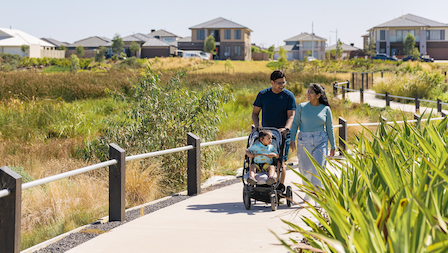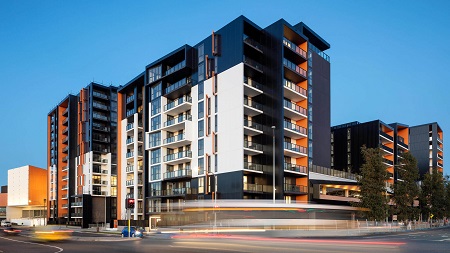Is stamp duty payable by first home buyers?

Purchasing your first home in Australia is a very exciting time, yet it can often be accompanied by big questions. Many of these questions centre around stamp duty. Do first home buyers have to pay stamp duty? How much is it? Are there exemptions or concessions?
In the following sections, we will discuss stamp duty rules across every state, set out some of the relief available, and show you how to work out potential costs. For smart financial planning and a smoother move into your new home, grasping these details is key.
Important reminder: This guide is for informational purposes only and does not constitute financial, legal, or tax advice. You must do your own investigations and seek independent professional advice from qualified financial advisors tailored to your circumstances before making any financial decisions. See the full disclaimer below.*
Do first home buyers need to pay stamp duty?

First home buyers often ask: What is stamp duty - do I really need to pay it? The short answer is generally yes, but often with some relief. Stamp duty is a tax put on transactions by state governments. Many first home buyers are eligible for a number of exemptions or concessions, and these can reduce stamp duty, or sometimes eliminate it altogether. Whether they apply to you or not is dependent on your income, the price of the property, and a set of eligibility criteria that can vary widely from state to state.
Stamp duty on houses by state
Rules surrounding stamp duty aren't uniform across Australia; each state and territory sets its own regulations, thresholds, and available relief programs. This means there are opportunities for you to pay or save a lot more, depending on the areas you are looking at for your new home. It is vital that you research and adhere to area-specific rules before making that big decision:
1. Stamp duty in Victoria
In Victoria, eligible first home buyers can receive exemptions or concessions on stamp duty for properties that fall under certain threshold amounts. These generally relate to properties you are going to live in, and are dependent on the price of the home.
2. Stamp duty in New South Wales
In New South Wales, there is the First Home Buyer Assistance Scheme (FHBAS), which offers stamp duty exemptions for eligible first homes below the cap and concessions on properties over the cap. Generally, eligibility hinges on the price of the home and whether it is new or existing.
3. Stamp duty in Queensland
Queensland provides first home owner stamp duty concessions for an eligible first home, which helps reduce the amount payable. The size of the concession is based on the value of the property and whether it is new or established.
4. Stamp duty in Western Australia
Western Australia also allows for first home buyer stamp duty concessions. This can subsequently reduce the amount of stamp duty you have to pay on your eligible home. Specific thresholds apply depending on the price of the property and generally apply to residential homes.
5. Stamp duty in South Australia and other states
Like South Australia, other states and territories also have their own first home buyer stamp duty exemptions or concessions, and rules governing them. Generally, these concessions and exemptions have a value threshold and residency requirements. Always ensure you check the relevant government website to make sure you have the most up-to-date information relevant to your location.
Stamp duty exemptions and concessions for first home buyers
Imagine saving thousands of dollars on the purchase of your first home. For many first home buyers, stamp duty savings are a real possibility. To reap these benefits, it's important to first understand the key difference between an exemption and a concession, along with who qualifies for each category.
| Feature | Exemption | Concession |
|---|---|---|
| Definition | You pay no stampduty at all on your property purchase | You have a lower amount of stamp duty topay |
| Who does this apply to? | For first homebuyers purchasing homes that are under a specific price limit | For first home buyers that are purchasing homes above the exemption threshold and under a higher concession limit |
To qualify for first home buyer stamp duty relief, applicants need to meet certain eligibility criteria and property value thresholds, which can vary from state to state. Generally, the key requirements include:
- To be an individual (not purchasing through a company or trust)
- To be at least 18 years old
- You must also be an Australian citizen or permanent resident
- You must be purchasing your very first home in Australia, meaning neither you nor your partner has previously owned residential property within the country
- The property you buy must be where you intend to live as your principal place of residence.
Calculating your potential stamp duty

You will need to factor estimated stamp duty into your first property budget. Fortunately, there are a lot of resources that can help first home buyers navigate this. Below are a few quick and simple ways to come up with an estimated cost for budgeting:
1. Official state-based calculators
Each Australian state and territory government provides a full online calculator that is ideally suited for this purpose. These calculators furnish you with a more accurate estimate as they are You will need to factor estimated stamp duty into your first property budget. Fortunately, there are a lot of resources that can help first home buyers navigate this. Below are a few quick and simple ways to come up with an estimated cost for budgeting: only used by state and territory governments and continuously updated with current rates, exemptions, and concessions.
2. Caution when using lender and third-party options
Beyond official government tools, many lenders and independent property websites also offer stamp duty calculators. While these can be useful for first home buyers, it's always a good idea to cross-check their estimates with the official state government calculator to ensure accuracy. Many of these sites are helpful as they often include other potential costs, such as legal fees or registration fees, so that you can have greater context on your finances.
3. Getting advice if your situation is unique
Online calculators are helpful, but they may not cover every unique detail. If you're dealing with complex circumstances, such as buying property with multiple individuals, purchasing a specialised property type, or navigating intricate financial arrangements, we recommend seeking professional advice. A conveyancer, solicitor, or financial advisor can give you precise figures and answer any specific eligibility questions to ensure you're fully prepared.
Assistance programs that reduce first home owner stamp duty

While there are developed schemes that simply offer stamp duty exemptions or concessions, there are also broader first home buyer assistance schemes that can reduce your stamp duty burden. These are:
1. First home buyers assistance schemes
This is a state-based program (like the one in NSW) specifically designed to reduce or eliminate stamp duty for eligible home buyers, including first home buyers. It directly targets the upfront cost of duty based on the property's price and whether it's new or established. Each state or territory has similar schemes that offer stamp duty relief for eligible purchases.
2. First Home Owner Grant (FHOG)
The First Home Owner Grant (FHOG) is a lump sum grant of money paid to eligible first home buyers usually for new homes. Although it is not a reduction in stamp duty directly, the most common amount is up to $10,000, which significantly eases the overall cost of home ownership. The FHOG can free up funds in your budget that would have been allocated to other upfront costs, including stamp duty.
3. Other home buyer support schemes
The support for first home buyers extends beyond just stamp duty relief. A variety of other housing programs, offered by state and federal governments, further enhance the pathway to homeownership, including important programs such as the First Home Guarantee scheme.
Final thoughts on stamp duty for first home buyers
Don't let stamp duty complicate your first home buying experience. Having a clear understanding of whether you'll need to pay any stamp duty and what those costs entail is vital for sound financial planning. Knowing your eligibility for exemptions and concessions allows for accurate budgeting, enables you to eliminate unwelcome surprises, and feel assured as you approach owning your new home.
* Stamp duty exemptions, concessions, savings estimates, and other government schemes or grants mentioned in this article are based on information from different state and territory government websites as of the date of publication. This information is provided as a general guide only and does not constitute financial, legal, or tax advice. Actual figures and eligibility for stamp duty concessions or grants may vary depending on individual circumstances. For up-to-date information, please refer to the relevant government authority. Purchasers are responsible for seeking independent professional advice or conducting their own enquiries regarding tax and stamp duty implications to determine their eligibility for concessions and to apply any applicable benefits. No representations or warranties are made regarding the accuracy, currency, or completeness of the estimates and content provided in this article.
See more articles on















